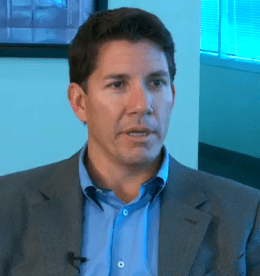Gary Kovacs, the CEO of Mozilla, today took aim at Apple and Google — or possibly Apple and Samsung; you can take your pick about how you parse mobile dominance — and made a impassioned call for the mobile world to remain competitive. At a keynote during the Mobile World Congress this week in Barcelona, he said companies needed to resist consolidation when it comes to offering mobile services to the four billion consumers that are expected to be mobile users in the next several years.
“There are many needs that are being unfilled,” he told an audience this morning. “There should be many app stores, business many models, many payment mechanisms, many providers, many services. And there should not be one or two providers approving content.”
He said that hegemony extended into different aspects of the mobile ecosystem, from services to hardware — and (it could be argued) mobile carriers. “We need to make sure there are devices and applications and make sure this shared opportunity is not something these one or two companies unnaturally control. I believe that others in this ecosystem also need to contribute.”
While he didn’t mention Apple, Google, Samsung or even Nokia by name, the speech was clearly aimed at the fact that the mobile world has largely developed with a heavy emphasis on dominant players. The words are interesting in that they run counter to a lot of the arguments for economies of scale that others believe are necessary to make new things like mobile cost-effective.
Mozilla, of course, has a massively vested interest here: this week the foundation announced the arrival of the first mobile devices built on Firefox OS, its new mobile OS built entirely on a non-native HMTL5 framework — “open” by default, Mozilla would claim.
Mozilla is working with some 21 partners, including 18 carriers, which he referred to as “visionaries,” to develop devices using the platfrom. It looks like, for now, neither Nokia nor Samsung will be a part of that effort.
He compared the opportunity ahead with mobile to the one that Mozilla faced when it first opened for business on the wider internet. Being open, he says, is the reason why we have so much content online now compared to before (never mind technology advances like the explosion of broadband, or the fact that it’s significantly easily to create web content today than it used to be, or PC penetration, or the growth of smartphones).
“Since the walls of AOL came down we’ve had a 1000% increase in content online,” he said. (disclaimer: AOL is the owner of TechCrunch).
He also acknowledged that it will be a long process to grow Firefox OS, and in general to break down hegemony. “It’s a start and we have a lot to do,” he said. “We launched Firefox OS, but that’s just a name. It’s just a catalyst.”
The first phones built on Firefox OS will be launched later this year, with early carriers including Telefonica and T-Mobile.
